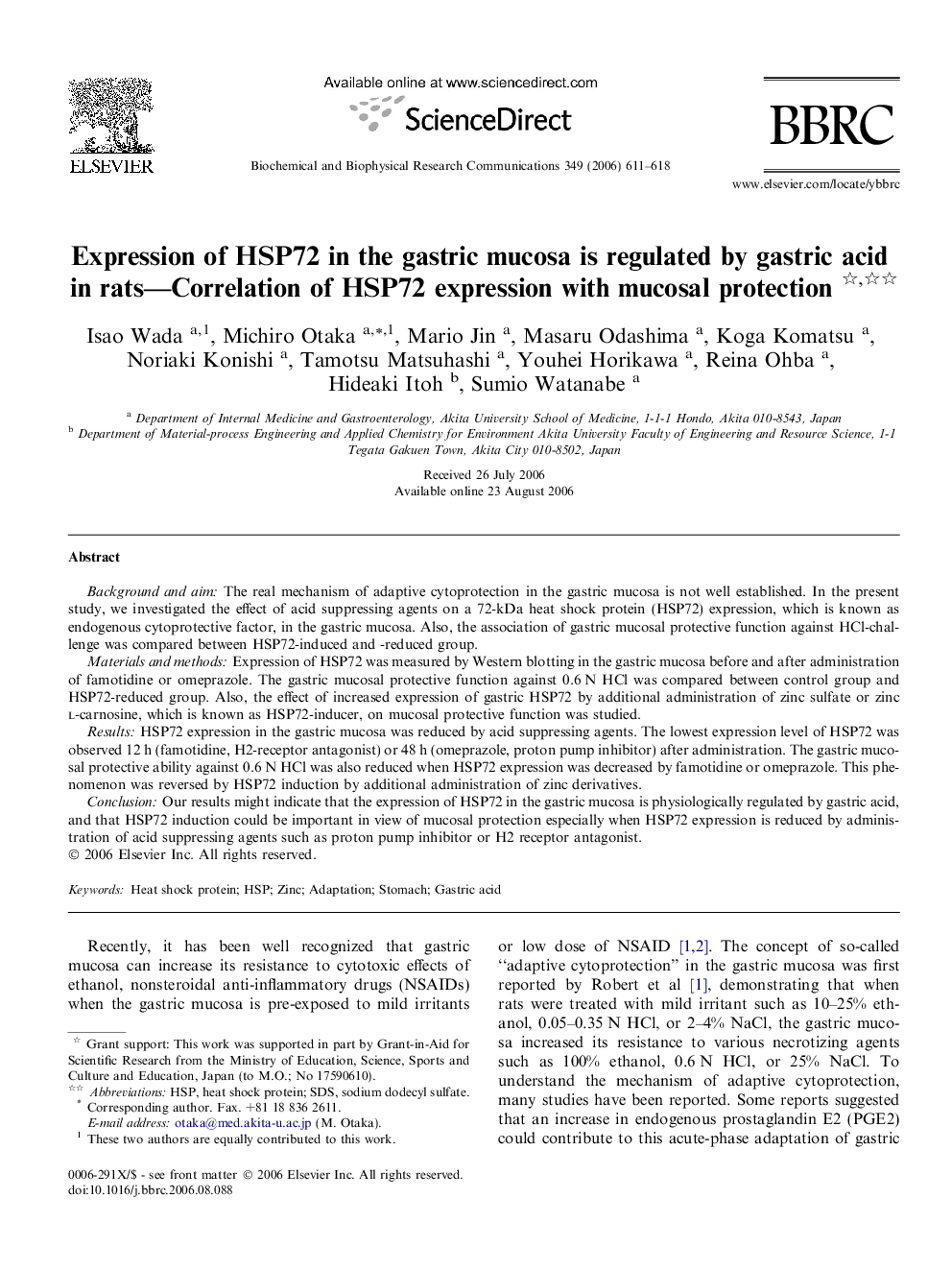| Article ID | Journal | Published Year | Pages | File Type |
|---|---|---|---|---|
| 1938695 | Biochemical and Biophysical Research Communications | 2006 | 8 Pages |
Background and aimThe real mechanism of adaptive cytoprotection in the gastric mucosa is not well established. In the present study, we investigated the effect of acid suppressing agents on a 72-kDa heat shock protein (HSP72) expression, which is known as endogenous cytoprotective factor, in the gastric mucosa. Also, the association of gastric mucosal protective function against HCl-challenge was compared between HSP72-induced and -reduced group.Materials and methodsExpression of HSP72 was measured by Western blotting in the gastric mucosa before and after administration of famotidine or omeprazole. The gastric mucosal protective function against 0.6 N HCl was compared between control group and HSP72-reduced group. Also, the effect of increased expression of gastric HSP72 by additional administration of zinc sulfate or zinc l-carnosine, which is known as HSP72-inducer, on mucosal protective function was studied.ResultsHSP72 expression in the gastric mucosa was reduced by acid suppressing agents. The lowest expression level of HSP72 was observed 12 h (famotidine, H2-receptor antagonist) or 48 h (omeprazole, proton pump inhibitor) after administration. The gastric mucosal protective ability against 0.6 N HCl was also reduced when HSP72 expression was decreased by famotidine or omeprazole. This phenomenon was reversed by HSP72 induction by additional administration of zinc derivatives.ConclusionOur results might indicate that the expression of HSP72 in the gastric mucosa is physiologically regulated by gastric acid, and that HSP72 induction could be important in view of mucosal protection especially when HSP72 expression is reduced by administration of acid suppressing agents such as proton pump inhibitor or H2 receptor antagonist.
